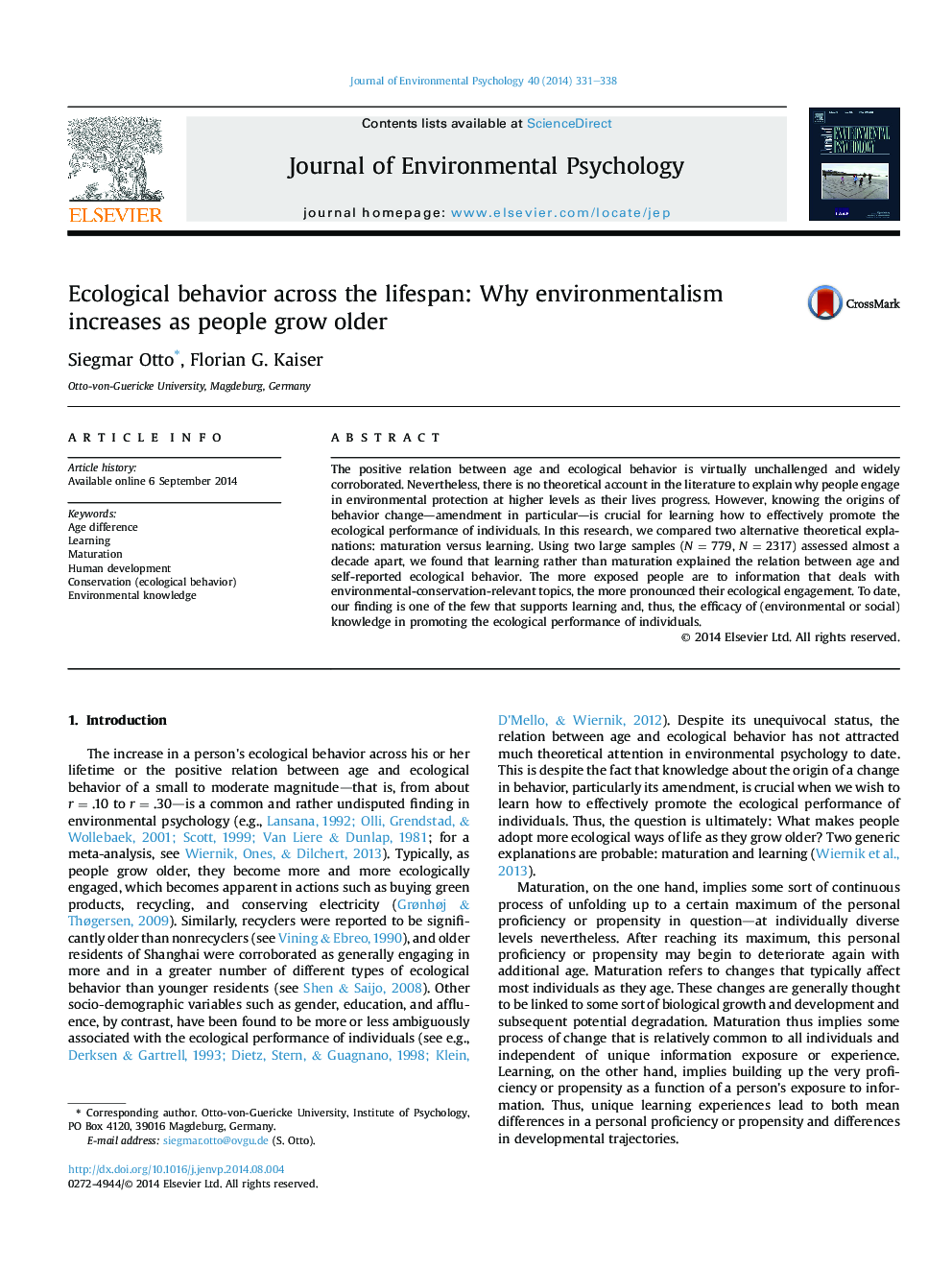| Article ID | Journal | Published Year | Pages | File Type |
|---|---|---|---|---|
| 7245966 | Journal of Environmental Psychology | 2014 | 8 Pages |
Abstract
The positive relation between age and ecological behavior is virtually unchallenged and widely corroborated. Nevertheless, there is no theoretical account in the literature to explain why people engage in environmental protection at higher levels as their lives progress. However, knowing the origins of behavior change-amendment in particular-is crucial for learning how to effectively promote the ecological performance of individuals. In this research, we compared two alternative theoretical explanations: maturation versus learning. Using two large samples (NÂ =Â 779, NÂ =Â 2317) assessed almost a decade apart, we found that learning rather than maturation explained the relation between age and self-reported ecological behavior. The more exposed people are to information that deals with environmental-conservation-relevant topics, the more pronounced their ecological engagement. To date, our finding is one of the few that supports learning and, thus, the efficacy of (environmental or social) knowledge in promoting the ecological performance of individuals.
Keywords
Related Topics
Social Sciences and Humanities
Psychology
Applied Psychology
Authors
Siegmar Otto, Florian G. Kaiser,
